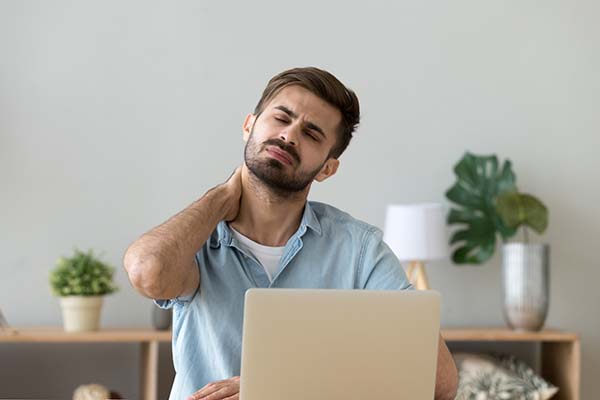Strategies for Effective Pain Management by Physical Therapists

Physical therapists identify, diagnose, and treat movement issues. They examine people experiencing pain and work with them to develop a personalized plan using various treatment techniques to restore their function and mobility, reduce discomfort, and improve their quality of life. This comprehensive approach to pain management not only addresses symptoms but also targets the root cause of the individual's discomfort and tailors the treatment to their unique needs. Here are some key strategies that physical therapists use to help individuals manage their pain.
Assessing the patient and personalized plans
Through a comprehensive evaluation, a physical therapist can identify a patient's underlying issues that may be contributing to their pain. This initial step allows the therapist to develop a personalized treatment plan that targets specific areas of concern. By determining the underlying cause of the patient's discomfort, the physical therapist can employ targeted interventions, fostering more effective and lasting pain relief.
Exercise
One of the key strategies of effective pain management is incorporating therapeutic exercises into the patient's treatment plan. These exercises serve various purposes, including improving strength, flexibility, and overall function while targeting the root causes of the patient's pain. The physical therapist carefully designs exercise routines tailored to each individual's abilities and treatment goals. This active involvement instills a sense of control and self-efficacy in the patient's treatment plan and journey toward a pain-free everyday life.
Manual therapy
Manual therapy refers to specific hands-on techniques the physical therapist may use to manipulate or mobilize the patient's joints and muscles. These techniques are often used with physical activity to increase the patient's movement and reduce discomfort. The physical therapist may apply manual therapy with their hands or use special instruments.
Some examples of manual therapy techniques include:
- Joint mobilization
- Soft-tissue mobilization
- Myofascial release
- Instrument-assisted soft tissue mobilization (IASTM)
- Dry needling
- Active Release Techniques (ART)
Pain education
Understanding the reason behind chronic pain is important for effective pain management and each person's treatment. Physical therapists can help educate patients about their condition and give them the information they need to understand the source of their pain and what triggers it. Educating patients about the structure of their bodies and the rationale behind various treatment modalities also promotes a collaborative and informed approach to their recovery. When they understand the importance of following their treatment, patients are more likely to take an active role in their treatment plan, leading to better outcomes in pain management.
Graded exposure
Intense emotions like fear are often associated with pain. Graded exposure refers to when the physical therapist slowly introduces movement and activity into the patient's life. This may involve visualizing motion by slowly — and safely — moving in pain-free ways, starting the process of returning to regular activities. Graded exposure can help reduce pain and restore the patient's ability to participate in their everyday routine.
Psychologically informed physical therapy
A comprehensive approach to pain management involves considering the physical aspects of treatment and the psychological and emotional dimensions of the patient's experience. Many physical therapists recognize the connection between the mind and body in effective pain management and incorporate strategies to address both. They may integrate relaxation techniques, stress management, and mindfulness practices into the patient's personalized treatment plan to promote both physical and emotional well-being.
Modalities
Physical therapists can also use modalities as part of a patient's pain management treatment plan. This therapeutic strategy can reduce pain and inflammation, giving the patient instant relief and enhancing the effectiveness of other pain management treatments. These modalities may include:
- Heat
- Cold
- Ultrasound
- Electrical stimulation
Physical therapy is a collaborative path to lasting pain relief
If you have been struggling with pain after an injury, accident, or medical procedure, working with a physical therapist can help provide long-lasting pain relief. These medical professionals help individuals target the root cause of their pain and get back to living their everyday lives. Contact our office to learn more about the strategies we use at Orange County Physical Therapy OCPT or schedule a consultation at our Newport Beach office.
Request an appointment here: https://ocptclinic.com or call Orange County Physical Therapy OCPT at (949) 299-0297 for an appointment in our Newport Beach office.
Check out what others are saying about our services on Yelp: Pain Management in Newport Beach, CA.
Related Posts
Sports physical therapy helps athletes return to play safely after injuries or setbacks. With the help of a physical therapist, treatment strives to improve mobility and performance while alleviating pain. These providers also look closely at how the body moves, not just where it hurts. With the right timing and a clear plan, this type…
Manual therapy is an advanced form of physical therapy techniques that focuses on hands-on techniques to address musculoskeletal pain, stiffness, and limited mobility. This approach differs from treatments that primarily rely on pain medications or surgical procedures. Manual therapy focuses on working directly with your physical therapist to help you regain function and mobility in…
Effective pain management from a physical therapist does more than mask symptoms. It reduces inflammation, restores movement, and builds resilience. Many may wonder where to start and which steps truly matter. With guidance from a licensed physical therapist, a clear plan can calm flare-ups and prevent them from returning. Here are a few ideas that…
Massage therapy is widely known for its therapeutic benefits, particularly when administered by an experienced physical therapist. Physical therapists have a unique understanding of musculoskeletal anatomy and movement and can utilize massage therapy to help patients recover. This approach, also known as physical therapy massage, reduces pain and improves overall physical health.According to the National…
